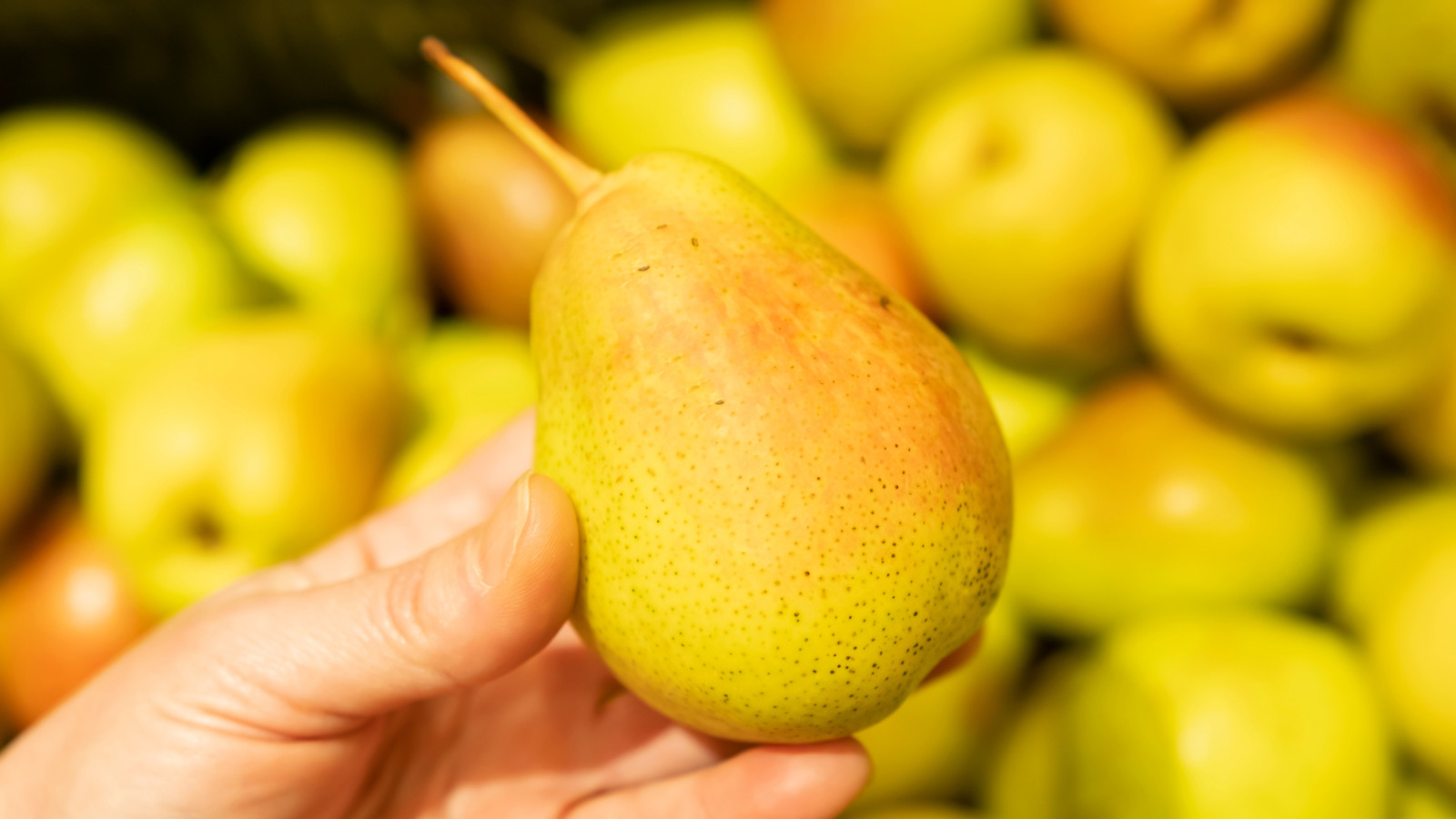
"The biggest mistake everyone makes when buying pears is thinking that they should be soft and ripe when you take them home from the store or farmers' market. Actually, though, pears that already exhibit soft flesh throughout are likely overripe, at risk for falling apart, and have that dreaded mealy bite. So, how do you avoid disintegrating, overly tender fruit? Since pears are typically harvested from their trees before they've ripened fully,"
"So, the best way to confirm a pear isn't overly ripe is to feel the top around the stem for a slight give that indicates the fruit is pretty much ripe and ready to eat. For pears that last longer once you bring them home, choose fruit that still feels firm at the top and throughout. Then, let unripe pears sit out on the counter until they soften"
Buy pears that are still firm because many varieties are harvested before they finish ripening. Avoid fruit with soft flesh throughout, which signals overripeness, mealy texture, and a tendency to fall apart. Check ripeness by pressing gently around the stem for a slight give, since color change is not a reliable indicator for all pears. Let firm pears ripen on the counter until the top softens but the fruit is not squishy or slimy. Use very soft or bruised pears immediately for cooking applications such as pear butter, and reserve firm pears for longer storage or later use.
Read at Tasting Table
Unable to calculate read time
Collection
[
|
...
]